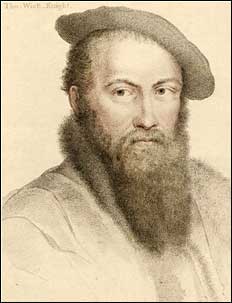
Think'st Thou To Seduce Me Then
Think'st thou to seduce me then with words that have no meaning?
Parrots so can learn to prate, our speech by pieces gleaning;
Nurses teach their children so about the time of weaning.
Learn to speak first, then to woo; to wooing much pertaineth:
He that courts us, wanting art, soon falters when he feigneth,
Looks asquint on his discourse, and smiles when he complaineth.
Skillful anglers hide their hooks, fit baits for every season;
But with crooked pins fish thou, as babes do that want reason:
Gudgeons only can be caught with such poor tricks of treason.
Ruth forgive me, if I erred from humane heart's compassion,
When I laughed sometimes too much to see thy foolish fashion:
But, alas, who less could do that found so good occasion?




